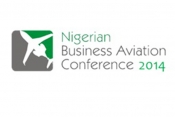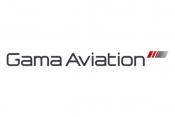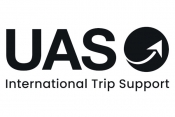Expansion, revision, participation - watch words of the Second Nigerian Business Aviation Conference.
Thursday 10th April 2014
The second Nigerian Business Aviation Conference organised and hosted by EAN Aviation on 27 and 28 March 2014 welcomed over 159 delegates, 25% more than last year, to its extended day and a half format at the prestigious Wheatbaker Hotel in Lagos. A line up of international and national speakers, panellists and Nigerian government officials debated the Nigerian Business landscape and revisited the essential themes from the first annual event held last year.
This year's conference programme was designed to provide a platform for analysing and reviewing Nigerian Business Aviation and to stimulate discussion about what is needed to support continual, sustainable development. Hosted by the esteemed Chair, Alan Peaford MBE, delegates heard from a variety of speakers, including financiers, lawyers, operators, OEMs, local authorities and other key stakeholders in Nigerian aviation.
Segun Demuren, MD/CEO of hosts EAN Aviation and convener of the conference, opened discussions by highlighting the rapid expansion of Nigerian Business Aviation. "It has been an extremely busy year for the sector," he stated presenting a number of key facts about the industry. "Nigeria is now Africa's fastest growing Business Aviation economy with more new and pre-owned aircraft delivered to Nigeria, than South Africa in the last year.
The country's private jet fleet is larger than the commercial aircraft fleet. Growth has been driven predominantly by the oil and gas industry however other sectors including finance, manufacturing, telecoms & agriculture are all contributing to a market which is set to grow by 20% this year." He also highlighted challenges that he hoped the forum would debate including the fact that any aircraft put on a 5N (Nigerian) registry will lose asset value by as much as 25% yet incur higher insurance premiums, up to 35% higher in some cases. Maintenance and service support still remains a challenge and whilst the fleet continues to grow there are no accurate figures for the amount of jets operating in Nigeria. Educated guesses say between 100 and 150, with an anticipated 350 set to be in operation by 2016.
However underpinning the significance of the conference and the Nigerian pride in its business aviation sector Demuren stated that OEMS, operators and key stakeholders are all delivering the same message. "We believe in Nigeria. We are committed to Nigeria and we are willing to understand how we can do business successfully in Nigeria"
Captain Nogle Meggison, Chairman of the Airline Operators Committee said that transport logistics within Nigeria also stimulated growth with poor roads, a limited domestic airline fleet and train network meant that executive jets provide a solution to much of the logistical challenges in the country.
"The time saving, the convenience and the increased productivity that follows means business aviation is not a luxury but an essential tool for growth in Nigeria." He argued that the government is supporting expansion stating it has removed import duties on new jets; has signed the Cape Town convention reassuring lessors about asset security; invested in new infrastructure including a private jet terminal that opened last year in the political centre Abuja; and does not impose a time restriction on the amount of time a foreign registered private jet can stay on Nigerian soil. Whilst this is stimulating growth he acknowledged that improved regulations, comprehensive MRO offerings, the implementation of structured safety management systems and local participation were all necessary for ongoing success.
The Growth in Opportunities panel addressed some of these issues stating that manpower and human resources are still an issue. Demuren commented "the struggle is to educate and train as quickly as possible, knowledge transfer will take some time before we have enough home grown engineers." Ettore Poggi, MD of ExecuJet Africa suggests that real economic growth within the sector will come from the business of supporting private jets through training, support and maintenance. "We need to encourage aircraft operators and owners to keep maintenance checks in country. If we begin with A and B checks then the heavy maintenance will follow," he stressed.
Key government authorities joined the elite audience including Acting Director General of the Civil Aviation Authority, Engineer Benedict Adeyileka who presented the government's industry support by discussing the country's ongoing transformation agenda which is currently reviewing General Aviation, in recognition of its contribution to supporting the local economy. The CAA is currently reviewing all elements of GA regulations covering a wide range of sectors from Air Ambulance and Aviation Leisure Activity through to the Air Taxi and Corporate Charter market. He said that the CAA is taking an inclusive approach by requesting feedback from all aviation stakeholders,
"The only way we can develop the most suitable industry regulations is through your feedback and we encourage you to submit your thoughts," he told the audience. Automated issuing of permits to local operators is also close to fruition, although when implemented will not initially be accessible to foreign operators.
Whilst the authorities seem to be making progress aviation financing doesn't seem to be following suit. "Most aircraft in Nigeria are cash bought," commented Melanie Humphries Head of Aviation Corporate and International Banking Investec. She stressed flexibility, partnerships with local banks and simple financial engineering could provide solutions to the lack of aviation finance currently available. To date it has proved difficult for international financiers to encourage local bank participation.
However once an aircraft is purchased the post acquisition panel suggested that the situation is improving for maintaining and keeping the aircraft. An increased availability of hangerage, improved and larger ramp space, and growing maintenance facilities are all helping to protect the asset. Addressing the concerns of insurance fees Simon Richards, Executive Director Contract and Leasing Willis Aerospace commented "There is nothing wrong with having any specific registration, what affects the price is supply and demand." He called for local insurers to play their part in the market development.
The panel also reiterated the need to select the right aircraft for the mission and the OEM panel echoed these thoughts with acknowledgement that Nigera's business aviation community can benefit from the complete range of aircraft types to fulfil its varying requirements. The OEMs also explained that service maintenance offerings were improving but issues with spare parts were often related to customs issues rather than availability. To counter this issue the regulatory bodies are now allowing spare parts to arrive in country though duty free channels so reducing waiting times at customs and downtime of aircraft. However Achuzie Ezenagu, MD of Toucan Aviation stressed that for OEMs to really help Nigeria develop that they must have "boots on the ground to support development across the country and be on hand to support maintenance and post acquisition services."
Segun Demuren wound up the event stating, "Aviation is tough and locals need to take it more seriously, participate in its development, and need to maintain a long term vision recognising that it takes investment in time and money to make sure that we grow this vibrant and vital subsector of the economy". Dates for the third annual NBAC event were announced as the 26 and 27 March 2015.










Get Social
Twitter Linked in Facebook Instagram